Accédez à votre rapport IA LSAS : Analyse personnalisée de l'anxiété sociale
September 7, 2025 | By Elara Donovan
Vous avez rempli un questionnaire sur l'anxiété sociale et obtenu un score. C'est un chiffre, une catégorie — utile, mais qui vous laisse peut-être plus de questions que de réponses. Que signifie réellement ce score pour vous, votre vie quotidienne et vos relations ? Pour aller au-delà d'une simple étiquette, vous avez besoin d'une histoire plus profonde et plus personnalisée. C'est là que le rapport IA LSAS transforme une évaluation standard en un outil puissant de découverte de soi.
Cherchez-vous plus qu'un simple score issu de votre évaluation de l'anxiété sociale ? L'échelle d'anxiété sociale de Liebowitz (LSAS) est un excellent point de départ, validé scientifiquement. Cependant, une véritable compréhension de votre confort social nécessite un aperçu de vos motifs uniques. Découvrez comment le rapport personnalisé unique piloté par l'IA va au-delà des chiffres pour révéler les déclencheurs spécifiques qui façonnent votre anxiété sociale, offrant une feuille de route claire pour la croissance. Prêt à voir ce qui se cache derrière votre score ? Vous pouvez passer le test LSAS gratuit sur notre page d'accueil.
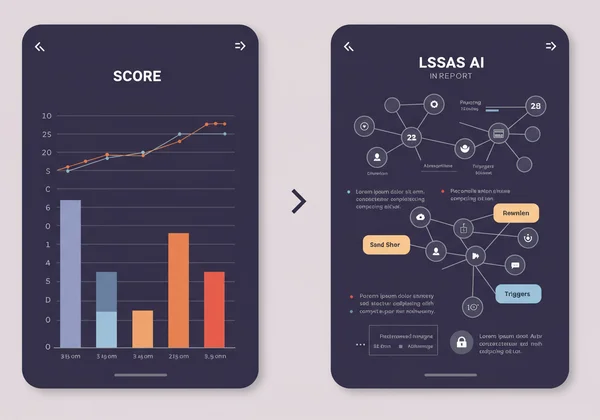
Qu'est-ce que l'analyse personnalisée de l'anxiété sociale ?
Les évaluations standard donnent un aperçu de votre niveau d'anxiété sociale, mais une analyse personnalisée brosse un tableau complet. C'est la différence entre savoir que vous avez de la fièvre et comprendre ce qui la provoque. Cette approche va au-delà de la généralisation pour se concentrer sur les nuances individuelles qui définissent votre expérience des situations sociales.
Au lieu d'un score unique, une analyse personnalisée décompose vos réponses pour identifier les thèmes récurrents, les défis spécifiques et les forces cachées. Elle examine de manière contextuelle vos peurs et vos comportements d'évitement dans divers scénarios, de la prise de parole en public aux conversations informelles. Ce retour personnalisé est votre clé pour débloquer une plus grande conscience de soi et réaliser des progrès significatifs.
Au-delà de votre score LSAS : des aperçus plus approfondis
Votre score LSAS standard est une métrique cruciale, plaçant votre anxiété sociale sur un spectre reconnu allant de légère à sévère. Il est basé sur la très respectée Échelle d'anxiété sociale de Liebowitz, un outil de référence. Cependant, deux personnes ayant exactement le même score peuvent avoir des expériences très différentes. L'une pourrait principalement lutter avec des situations de performance comme les présentations, tandis que l'autre trouverait les interactions individuelles les plus difficiles.
C'est là que le rapport IA excelle. Il approfondit les 24 situations spécifiques du questionnaire LSAS pour fournir des aperçus plus détaillés. Il met en évidence les scénarios qui vous causent le plus de peur par rapport à ceux que vous êtes le plus susceptible d'éviter. Cette distinction est vitale, car la peur et l'évitement sont des aspects liés mais distincts de l'anxiété sociale qui nécessitent des stratégies d'adaptation différentes.
Comment l'IA transforme vos données sur l'anxiété sociale
Il ne s'agit pas d'algorithmes faisant des suppositions ; il s'agit d'une reconnaissance de motifs sophistiquée à une échelle difficilement réalisable rapidement par les humains. Lorsque vous remplissez notre évaluation LSAS et optez pour le rapport IA, le système analyse l'interaction complexe entre vos réponses.
L'IA traite vos réponses aux 24 questions sur la peur et l'évitement, ainsi que toute information contextuelle facultative que vous fournissez. Elle identifie les corrélations et les motifs qui révèlent votre profil d'anxiété sociale personnel. Par exemple, elle peut détecter si votre anxiété est constamment plus élevée dans les situations impliquant des figures d'autorité ou si elle est plus prononcée lors de rassemblements sociaux non structurés. Cette transformation intelligente des données vous aide à comprendre vos réponses brutes, créant un récit clair sur vos expériences sociales uniques.
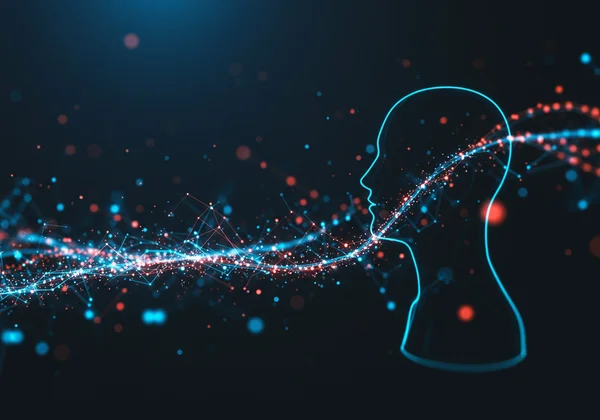
Identifier vos déclencheurs spécifiques d'anxiété sociale
L'une des fonctionnalités les plus puissantes du rapport IA LSAS est sa capacité à identifier vos déclencheurs d'anxiété sociale spécifiques. Un déclencheur est toute situation, pensée ou sentiment qui initie une réponse de peur. Comprendre vos déclencheurs personnels est la première étape pour les gérer efficacement. Le rapport agit comme un miroir, vous renvoyant ces déclencheurs avec clarté.
Beaucoup de gens sont vaguement conscients de ce qui les rend anxieux, mais ils ont du mal à l'exprimer. Le rapport IA catégorise et définit ces déclencheurs en fonction de vos données d'évaluation, vous faisant passer d'un sentiment général de "je n'aime pas les fêtes" à une perception spécifique comme "mon anxiété est la plus élevée lorsque je dois me présenter à des inconnus dans un grand groupe". Ce niveau de détail rend le problème moins accablant et plus gérable.
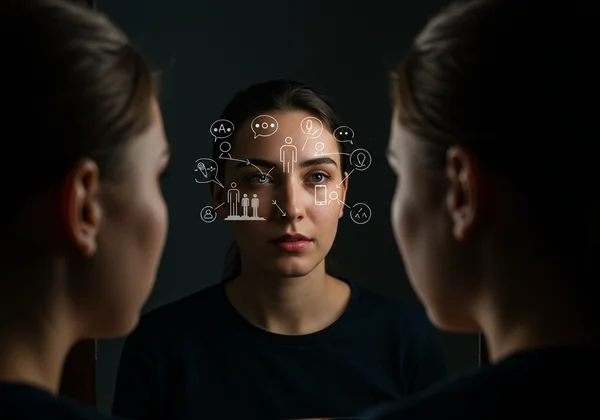
Exemples concrets : Scénarios de déclencheurs courants
Pour rendre cela tangible, considérons quelques exemples fictifs basés sur des motifs courants que l'IA pourrait identifier.
- Scénario 1 : Le Performeur. Un utilisateur nommé Alex obtient un score élevé de peur pour les questions liées à la prise de parole en public et au fait d'être le centre de l'attention. Le rapport IA identifie un motif clair de "Déclencheurs basés sur la performance". Il souligne qu'Alex est relativement à l'aise dans les conversations individuelles mais éprouve une détresse significative lorsqu'il est observé ou évalué.
- Scénario 2 : L'Interacteur. Un autre utilisateur, Ben, a des scores d'évitement élevés pour des situations telles que faire la conversation, retourner des marchandises dans un magasin ou parler à des personnes en position d'autorité. L'IA identifie un motif de "Déclencheurs basés sur l'interaction", suggérant que l'anxiété de Ben est liée à l'imprévisibilité des échanges sociaux directs plutôt qu'à une performance formelle.
Ces scénarios détaillés, adaptés à vos résultats, vous aident à reconnaître et à valider vos propres expériences.
Déclencheurs situationnels vs. internes : Un regard plus approfondi
L'analyse IA peut également aider à différencier deux types clés de déclencheurs. Les déclencheurs situationnels sont des événements externes, tels que faire une présentation, assister à une fête ou passer un appel téléphonique. Ce sont souvent les sources d'anxiété les plus évidentes.
Cependant, les déclencheurs internes sont tout aussi puissants. Ce sont vos pensées, vos croyances et vos sentiments, tels que la peur d'être jugé, la conviction que vous direz quelque chose de stupide, ou la sensation physique d'un cœur qui s'emballe. Le rapport IA vous aide à voir le lien entre des situations spécifiques et les récits internes qu'elles activent, offrant une auto-évaluation de l'anxiété sociale plus complète.
Comprendre vos motifs uniques d'anxiété sociale et leur impact
Au-delà des déclencheurs isolés, le rapport IA vous aide à reconnaître vos motifs d'anxiété uniques. Ce sont vos façons habituelles de penser, de ressentir et de vous comporter en réponse aux déclencheurs sociaux. L'identification de ces motifs est cruciale car ils fonctionnent souvent en pilote automatique, renforçant l'anxiété au fil du temps.
Par exemple, vous pourriez avoir un motif de pensée catastrophique avant chaque événement social, imaginant le pire scénario. Ou peut-être votre motif implique-t-il un évitement immédiat — refuser des invitations ou quitter des rassemblements tôt. Le rapport met ces habitudes subconscientes en pleine conscience, vous donnant le pouvoir de les changer. Vous pouvez découvrir vos aperçus après avoir complété le test sur notre plateforme.
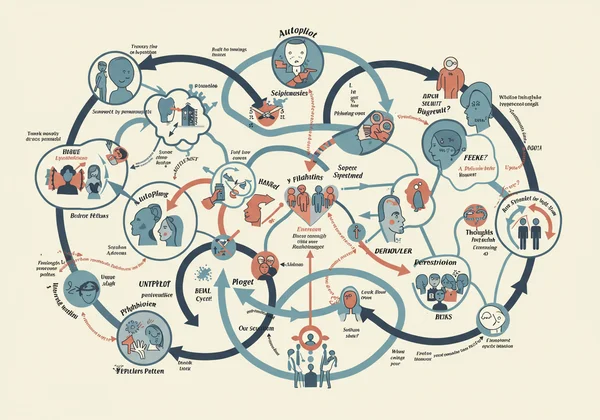
Reconnaître les comportements d'évitement et les mécanismes d'adaptation
Les comportements d'évitement sont des actions que vous entreprenez pour échapper ou prévenir les sentiments d'anxiété. Bien qu'ils offrent un soulagement à court terme, ils renforcent la croyance que les situations sociales sont dangereuses, ce qui renforce l'anxiété à long terme. Le rapport IA peut mettre en évidence des tactiques d'évitement subtiles dont vous n'êtes peut-être même pas conscient, telles que :
- Vous en tenir aux personnes que vous connaissez lors d'événements.
- Répéter excessivement les conversations dans votre tête.
- Utiliser votre téléphone comme un bouclier pour éviter l'interaction.
De même, le rapport peut éclairer vos mécanismes d'adaptation. Certains sont sains, mais d'autres peuvent être inadaptés. En comprenant ces motifs, vous pouvez commencer à cultiver des stratégies plus efficaces pour gérer votre confort social.
Décrypter l'impact sur la vie quotidienne et les relations
L'anxiété sociale n'existe pas dans le vide. Elle affecte votre carrière, votre éducation, vos amitiés et votre bien-être général. Le rapport IA vous aide à relier les points entre les résultats de votre évaluation et leurs conséquences dans le monde réel.
Pour les personnes cherchant une aide professionnelle, cette section du rapport est inestimable. Elle fournit un aperçu structuré de la façon dont l'anxiété sociale affecte différents domaines de la vie. Cette clarté vous permet d'avoir des conversations plus productives avec des thérapeutes ou des conseillers, car vous pouvez leur présenter un résumé détaillé de vos défis, aidant ainsi à créer un plan de traitement plus efficace.
Comment l'IA fournit des aperçus actionnables en santé mentale
La connaissance est puissante, mais l'action est transformatrice. L'objectif ultime du rapport IA LSAS est de fournir des aperçus en santé mentale par l'IA qui sont non seulement personnalisés mais aussi actionnables. Il est conçu pour être plus qu'un simple document informatif ; c'est un point de départ pour la croissance et le changement.
Le rapport traduit des motifs psychologiques complexes en un langage clair, compréhensible et des étapes pratiques. Il démystifie votre anxiété sociale, la recadrant comme un ensemble de défis gérables plutôt qu'une partie insurmontable de votre identité. Ce changement de perspective est souvent le premier pas vers l'acquisition d'une plus grande confiance sociale.
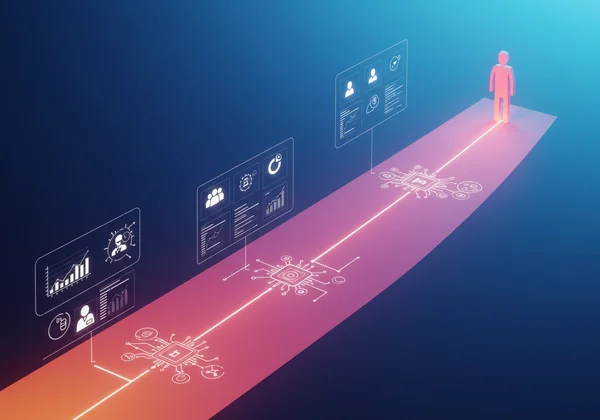
Suggestions de croissance personnalisées basées sur votre rapport
Basé sur votre profil unique de déclencheurs et de motifs, le rapport IA fournit un ensemble de suggestions de croissance personnalisées. Ce ne sont pas des conseils génériques, mais ils sont adaptés pour aborder les domaines spécifiques où vous rencontrez le plus de difficultés.
- Si votre rapport indique une forte anxiété de performance, il pourrait suggérer des techniques comme l'exposition progressive ou des exercices de pleine conscience à pratiquer avant une présentation.
- S'il met en évidence un motif de discours intérieur négatif, il pourrait recommander des exercices de restructuration cognitive pour remettre en question ces pensées.
Ces suggestions sont conçues pour vous donner les moyens d'utiliser des outils et des stratégies que vous pouvez commencer à utiliser immédiatement. Elles servent de guide pour l'auto-réflexion et le développement personnel.
Combler le fossé vers le soutien professionnel
Pour beaucoup, le rapport IA sert de pont crucial pour rechercher un soutien professionnel. Il valide leurs difficultés et leur donne la confiance et le vocabulaire nécessaires pour contacter un professionnel de la santé mentale. Remettre à un thérapeute un résumé détaillé et objectif de votre anxiété sociale peut accélérer les premières étapes de la thérapie.
Le rapport agit comme un formulaire d'admission complet, ce qui permet de gagner du temps et d'aider votre thérapeute à acquérir une compréhension approfondie de votre situation dès le premier jour. Il transforme un sentiment abstrait d'anxiété en points de données concrets qui peuvent guider un diagnostic professionnel et un plan de traitement. C'est la première étape parfaite de votre parcours pour comprendre et gérer votre confort social.
Votre chemin vers le confort social commence par la compréhension
Un simple score peut vous dire où vous en êtes, mais il ne peut pas vous montrer la voie à suivre. Le véritable progrès commence par une compréhension profonde et personnalisée. Le rapport IA LSAS de notre plateforme offre exactement cela — une carte détaillée de votre paysage unique d'anxiété sociale, complète avec les déclencheurs identifiés, les motifs comportementaux et des orientations actionnables pour votre parcours.
Arrêtez de deviner et commencez à comprendre. Allez au-delà du chiffre et découvrez l'histoire derrière votre anxiété sociale. Cette puissante perspicacité est la clé pour débloquer un plus grand confort et une plus grande confiance sociale. Commencez votre évaluation dès aujourd'hui pour faire le premier pas.
Foire aux questions sur le rapport IA LSAS
En quoi le rapport IA LSAS diffère-t-il du score standard ?
Le score standard vous donne un seul chiffre représentant votre niveau global d'anxiété sociale. Le rapport IA LSAS va beaucoup plus loin en analysant vos réponses individuelles pour révéler des déclencheurs spécifiques, des motifs de peur et d'évitement, l'impact sur votre vie et des suggestions personnalisées de croissance, offrant un profil complet et actionnable.
Quel type d'aperçus personnalisés puis-je attendre du rapport IA ?
Vous pouvez vous attendre à des aperçus sur les situations spécifiques qui déclenchent le plus votre anxiété, une ventilation de vos comportements d'évitement, une analyse de la façon dont ces motifs affectent votre vie quotidienne et vos relations, et des suggestions adaptées et actionnables pour vous aider à gérer ces défis. C'est une vue à 360 degrés de votre expérience personnelle.
Les exemples et les données utilisés dans le rapport IA sont-ils anonymes ?
Absolument. Votre vie privée est notre priorité absolue. Toutes les données de test et informations personnelles sont traitées avec une stricte confidentialité. L'analyse est effectuée de manière sécurisée, et votre rapport est strictement confidentiel. Nous nous engageons à fournir un environnement sûr et digne de confiance pour l'auto-exploration.
Le rapport IA LSAS peut-il fournir un diagnostic clinique de l'anxiété sociale ?
Non. Il est très important de comprendre que le rapport IA LSAS est un outil informatif et éducatif, et non un outil de diagnostic. Bien qu'il fournisse des aperçus profonds et précieux basés sur une échelle scientifiquement validée, il ne peut pas remplacer un diagnostic formel posé par un professionnel de la santé qualifié. Nous vous encourageons fortement à partager votre rapport avec un médecin ou un thérapeute pour une évaluation clinique.
Comment débloquer mon rapport IA LSAS personnalisé après avoir passé le test ?
Après avoir complété le test LSAS en ligne gratuit de 24 questions, vous recevrez instantanément votre score standard. Il vous sera ensuite proposé de débloquer votre rapport personnalisé complet piloté par l'IA. Suivez simplement les instructions à l'écran pour accéder à votre analyse approfondie.